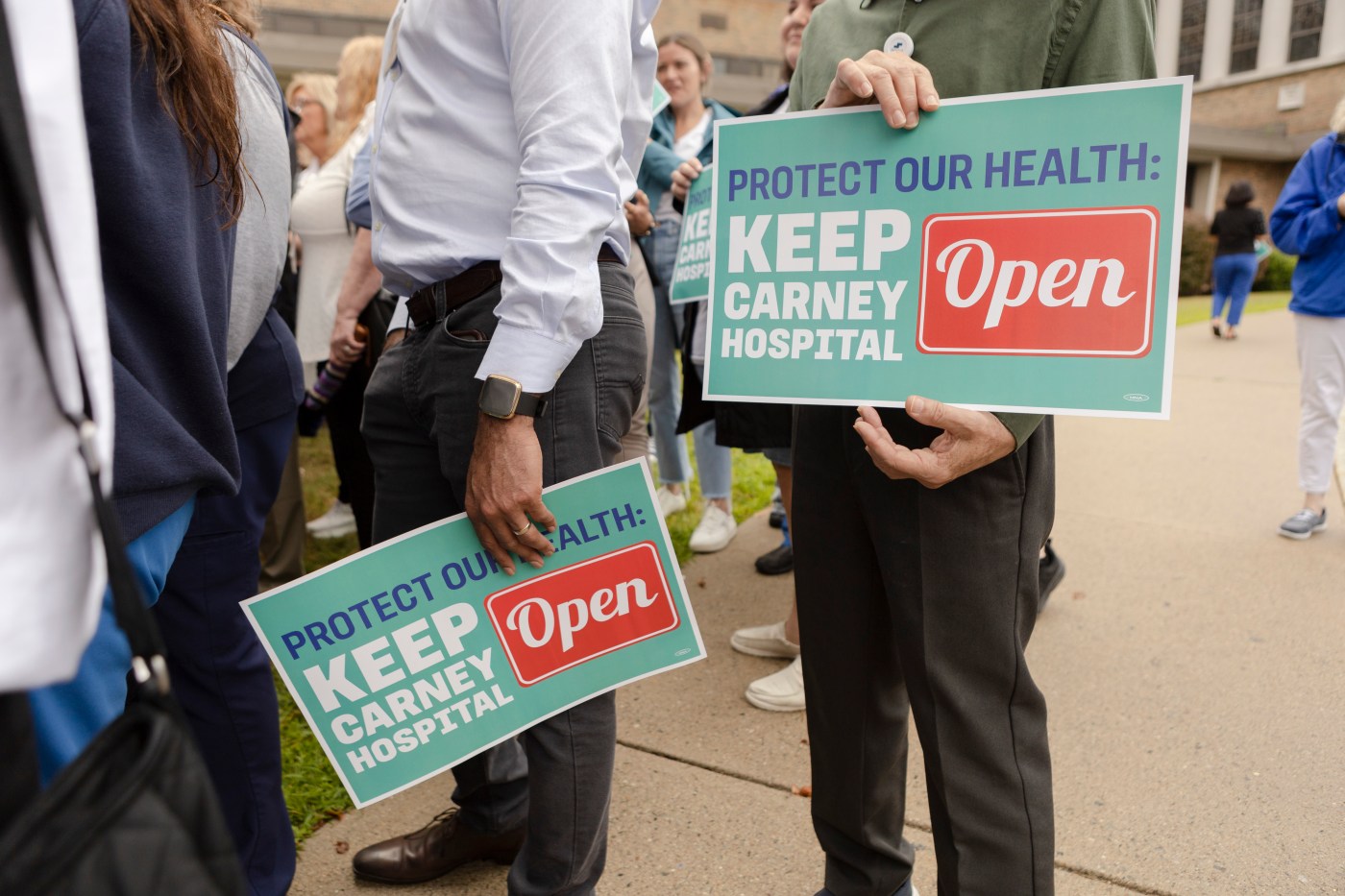
Steward deals still not done: ‘We are very close to the finish line’
Steward Health Care has not yet signed over any of their Bay State hospitals but is close to getting the job done, their lawyers told a bankruptcy court on Thursday.
The company is attempting to sell most of its Massachusetts properties to new operators, as they work to square $9 billion in outstanding debt obligations through Chapter 11 proceedings.
“Although there is a limit to the public update that I can provide, the debtors did want to post to the court and parties in interest that they continue to work with stakeholders in connection with the debtor’s efforts to transition the hospitals in Massachusetts,” attorney Candace Arthur, speaking on behalf of the Dallas-based company, told the bankruptcy judge.
“We have not yet executed asset purchase agreements related to the six hospitals, but again, we are very close to the finish line and are still fully engaged in mediation,” Arthur added.
The assertion comes as the state is anxiously watching the Steward situation play out both in court and in the various municipalities where the company owns hospitals.
Several of those hospitals — Good Samaritan Medical Center in Brockton, Holy Family Hospitals in Haverhill and Methuen, Morton Hospital in Taunton, Saint Anne’s Hospital in Fall River — are apparently on the cusp of being sold to interested buyers, much to the relief of Gov. Maura Healey’s administration which aims to see Steward exit the Bay State health care market entirely.
The land under St. Elizabeth’s Medical Center, in Boston’s Brighton neighborhood, will be taken by the state via eminent domain until such time as the hospital can be placed under the purview of Boston Medical Center, hopefully preventing that hospital from closing.
All of that hinges, of course, provided those deals can get completed in time. Texas bankruptcy Judge Christopher Lopez has already ruled that it is within Steward’s right to close Carney Hospital in Dorchester, and Nashoba Valley Medical Center in Ayer, and the company’s attorneys told the judge on Thursday that other hospitals in other states could face the same fate if they run out of money.
Gov. Maura Healey last week celebrated the deals as close to completion, and Steward was supposed to hold a sale hearing on the matter on Thursday. The company instead postponed that hearing for a sixth time, and noted this might not be the last delay. The first sale hearing was scheduled for July 9.
Earlier this week it became even more unclear when — or if — Steward might finalize its hospital sales, after the company accused its landlords of attempting to “siphon” the value out of their hospital facilities and claimed they were negotiating with bidders outside of the rules of the bankruptcy court.
“In response to MPT’s attempts to siphon value from the Debtors’ estates and, ultimately, resources from the Debtors’ creditors, patients, employees, and other key stakeholders, consistent with the Global Bidding Procedures, the Debtors have begun taking certain remedial actions,” Stewards lawyers wrote in court filings, before asking the judge for relief and a determination of how much the land and buildings are worth.
The company’s landlords, Medical Properties Trust, deny this allegation, saying it is Steward making the sale process difficult.
A spokesperson for MPT told the Herald that the company has been “collaborative and accommodating” in Steward’s attempts to keep its hospitals open through bankruptcy proceedings and that they “categorically reject any accusation that MPT has interfered with Steward’s marketing and sales efforts – on the contrary, we have proactively worked with potential bidders to address real estate-related matters.”
“Steward’s lawyers are wrongly blaming MPT for holding up sales when in fact Steward has refused to sell hospitals in order to extract value from MPT. The rent that Steward agreed to pay in the leases with MPT is a small fraction of Steward’s revenues, and in fact is dwarfed by the fees being charged by the professionals in this bankruptcy case. Despite Steward’s recent attempts to rewrite history, their own statements at the outset of the bankruptcy process make clear their financial stress is a product of their own operating failures – not rent obligations,” the spokesperson said.
Steward’s sale hearing is scheduled for Aug. 27, and it is scheduled to close Carney and Nashoba Valley on Aug. 31.
“We hope to be back before the court in very short order in connection with the Massachusetts hospitals and the transition there,” Arthur told the court.


